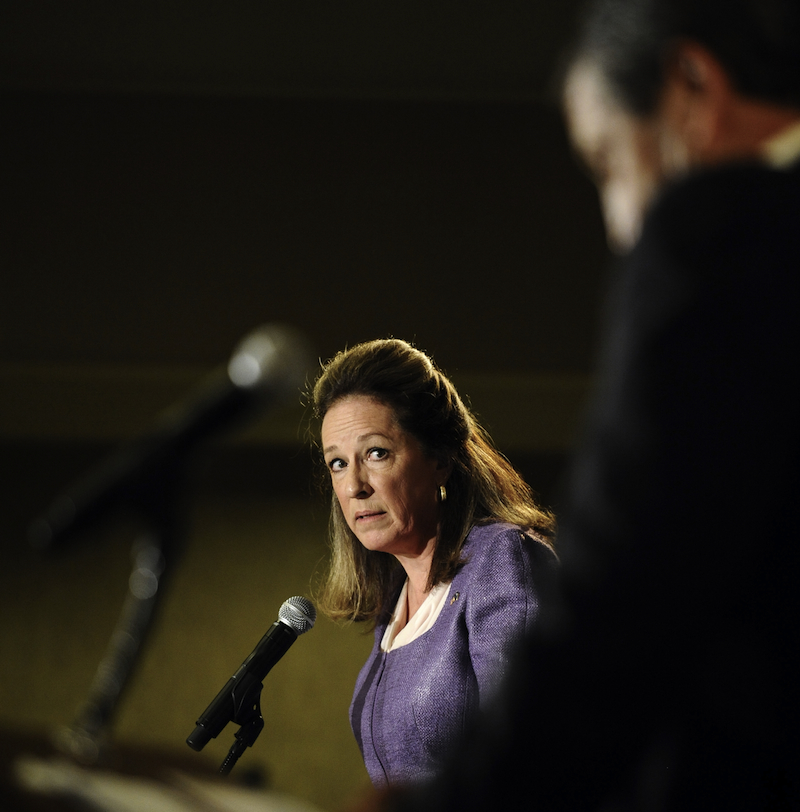In their first and only debate ahead of a May 7 special election for the House, Mark Sanford (R) and Elizabeth Colbert Busch (D) sparred over budgets, guns, and — of course — the Republican candidate’s personal life.
Colbert Busch, a senior administrator at Clemson University, described herself as a “tough independent businesswoman” who understood budgets from her time in the private sector. Sanford, the former congressman and governor, positioned himself as a veteran lawmaker with a “twenty year track record of trying to do something about the way the government spends.”
Although South Carolina’s First District is considered GOP-leaning, the combination of a scandal-plagued candidate in Sanford and a well-funded opponent in Colbert Busch, whose brother Stephen Colbert has helped raise money nationally, has led analysts to give Democrats the edge in recent days. The National Republican Congressional Committee withdrew its financial support for Sanford this month after news broke that his ex-wife had accused him of trespassing at her home, with a court appearance scheduled for shortly after the election. Recently Sanford demanded more debates then sparred with a cardboard cutout of Nancy Pelosi when Colbert Busch declined, a tactic associated far more with underdog candidates rather than with former governors who enjoy universal name recognition in their state.
As the NRCC’s move suggests, Sanford’s recent history is the main reason the race is so competitive. In 2009, he admitted to traveling to Argentina for an affair with his mistress without informing the public he was out of the state. The scandal sparked a state investigation that ended with Sanford paying a $74,000 ethics fine for misusing taxpayer dollars for personal reasons.
Colbert Busch brought the issue up sparingly but directly. At one point she questioned Sanford’s understanding of fiscal prudence, saying “it doesn’t mean you take that money we saved and leave the country for a personal purpose.”
Sanford brought the Argentina episode up at times himself, claiming “you don’t go through the experience I had back in 2009 without a greater level of humility.” And he slickly rebutted a question from the debate moderator over whether he regretted his vote to impeach President Clinton over his affair with Monica Lewinsky given his own personal history.
“I would reverse the quesiton to you and I would say this: Do you think that President Clinton should be condemned for the rest of his life based on a mistake that he made in his life?” he said.
Sanford’s primary argument against Colbert Busch was that she would prove unwilling to buck national Democrats enough to satisfy the conservative district. Colbert Busch took care to distance herself from House Democratic leaders on a number of issues: She said “Obamacare is extremely problematic” and praised South Carolina’s “right to work” law restricting union activity. But she embraced a number of party line positions as well, including a recent Senate bill expanding background checks on guns, an immigration bill co-authored by South Carolina Sen. Lindsey Graham (R), and marriage equality.
“Nobody tells me what to do except the people of South Carolina’s First District,” she said.









